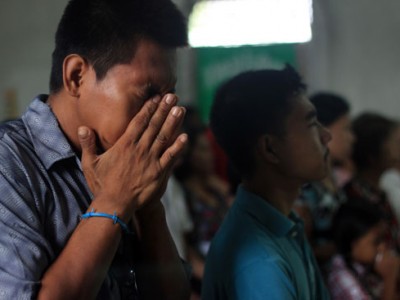
Prayer Requests for the Philippines
The following is an email sent to many Compassion employees on Sunday by Menchit Wong, our child advocacy director. It contains new prayer requests and an update on previous prayer requests for our Philippines brothers and sisters, in the wake of Typhoon Haiyan.
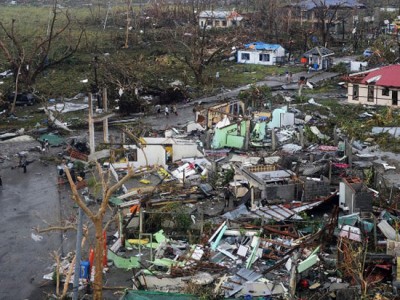
Responding to Typhoon Haiyan
When a disaster strikes, the first assistance sponsored children get is from the church partner connected to the child development center where they are registered.
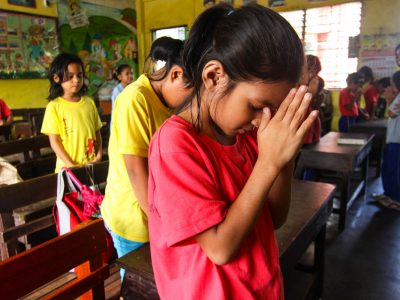
Pray for the Philippines
The following is an email sent to many Compassion employees yesterday by Menchit Wong, our child advocacy director. It contains prayer requests for our Philippines brothers and sisters, in the wake of Typhoon Haiyan.
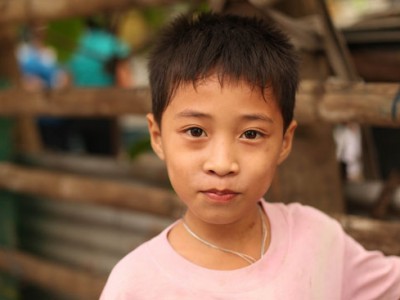
After Disaster Strikes: How to Choose a Charity to Donate To
Choosing the best charity to donate to is an important decision. Not all donations are equal. Here are a few questions to help you decide which charity is best for you.
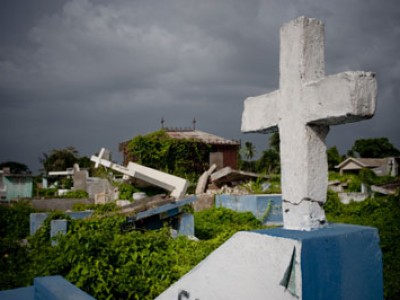
They Missed the Story
This was one of the worst natural disasters in human history. Millions of people affected. An entire nation shaken. The world captivated. And there was barely a mention on the anniversary. But, I think, perhaps what disappoints me most is the stories they missed.
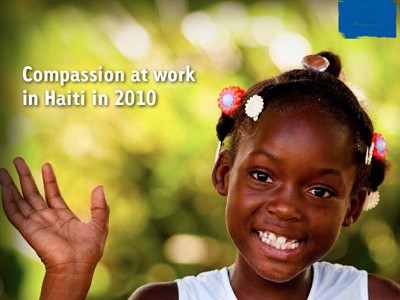
Our Haiti Relief Efforts One Year Later
Download this report which details our work in Haiti beginning in the days following last year’s earthquake to our future rebuilding efforts.
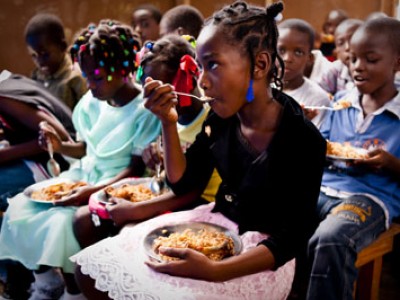
One Year Later: Haiti Will Not Die
The work is still large. It won’t happen overnight or even in a year. It will take years for Haiti to come back from this earthquake. But Elissaint isn’t leaving. Compassion Haiti isn’t leaving. And the local churches who implement our programs aren’t leaving. They are raising a generation of children to believe that their life doesn’t have to end with poverty.
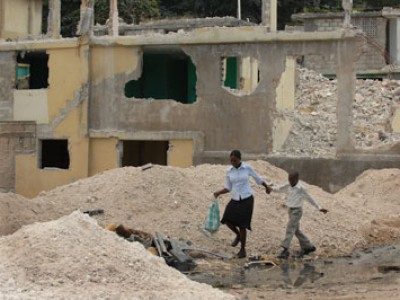
Hope for Haiti: The One-Year Anniversary
This has been a tragic year for Haiti on many fronts. In a matter of months after January’s earthquake, Haiti endured a hurricane which threatened those already homeless and displaced, a cholera outbreak has taken the lives of thousands more, and recent elections were so filled with corruption that rioting and violence followed them.
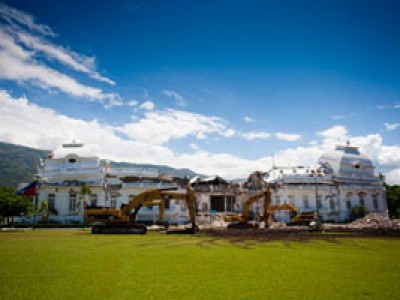
Redeeming Haiti
No one in their right mind would call the earthquake that hit Haiti a good thing. It was utterly devastating. And yet still there is good.
Because of the earthquake’s destruction, Haiti is now having to start with what feels like a nearly clean slate. The [corrupt and inefficient] government was toppled. The [inadequate] school system was destroyed. Proof of [unjust] land ownership is now virtually impossible. The [enormous and unbridgeable] gap in economic status was decimated, putting government officials in tents next to poor slum-dwellers.
Life in Haiti After the Earthquake: A Changed Perspective
Received from Ken Laura, a member of our Haiti Relief Team working in Port-au-Prince.
Sunday, April 25 — I moved last week and it has changed my situation and my perspective. Instead of sleeping in a tent beside the main road of Delmas listening to trucks roar up and down the street all night, I go to sleep seeing stars, and awaken to bird calls. Some of the birds are roosters, which start crowing at about 4:30, but other than that it is amazingly quiet here.
Whenever the power is out, usually from the morning until 10 p.m. there are very few lights in the area. Although the houses are a million dollars in size, they are only about $100,000 complete.
People do have mortgages here, but many build with the cash that they save from year to year and pay as they go. They don’t owe the bank interest, but they also have to wait a really long time to move into the house.
My new home is at the top of a steep hill in a very nice subdivision with a guard and pavement, mostly maintained. Some friends I’ve met are letting me stay as a courtesy.
Life in Haiti After the Earthquake: Weary but Resilient
This was written earlier in the week by Ken Laura, a member of our Haiti Relief Team. He has been in Port-au-Prince working with our Haitian staff since shortly after the earthquake.
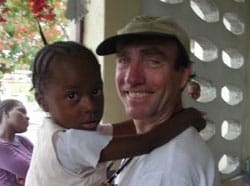 Five-thirty comes early most days, but especially on a Sunday morning when you hope to get some extra sleep before church. Not this week, however. I was wide awake at 5. I forced myself to stay in the sack for another 30 minutes despite the rooster’s consistent crowing.
Five-thirty comes early most days, but especially on a Sunday morning when you hope to get some extra sleep before church. Not this week, however. I was wide awake at 5. I forced myself to stay in the sack for another 30 minutes despite the rooster’s consistent crowing.
The high-pitched chirp of some baby doves asking for food and the soft cooing of their parents as they brought another tasty morsel to them brought back memories of 30 years ago when I was living in Limbe’ at the hospital where I worked. One of the other missionaries at that time was raising a pair of turtle doves for the eggs.
Calling my tent a sack is an exaggeration of for what I’ve been sleeping in the last three months. My tent living is nothing like what the vast majority of Port-au-Prince residents are living in at the moment.
As you’ve no doubt seen on the news, tent cities are all over town. More than 300 camps are registered in the city and more than 19 of them have 5,000-plus people living in them. The families are crammed together in muddy lots with only a sheet between them and the next family. Privacy is not a word in their vocabulary right now.
Our Transitional Shelter Solution for Haiti
The rainy season is starting soon in Haiti. This period generally lasts from March to May, and then hurricane season runs from June to November. Most of the people who live in the streets and in tent cities as a result of the earthquake will be exposed to the heavy rains.
We don’t have accurate information on how many of those living outside are in shelters that can withstand the rainy season, but it’s clear that a large number of them don’t have rainproof materials. The materials most commonly used now for shelter are bedsheets. These provide a bit of privacy as well as protection from the sun, cold and dust, but not from rain and wind.
We are focusing our efforts on addressing temporary and transitional shelter needs by providing tarps as well as materials for transitional shelters. We will not be able to assist everyone in need. We will focus on those who are most in need and who have not received shelter assistance from other organizations.


